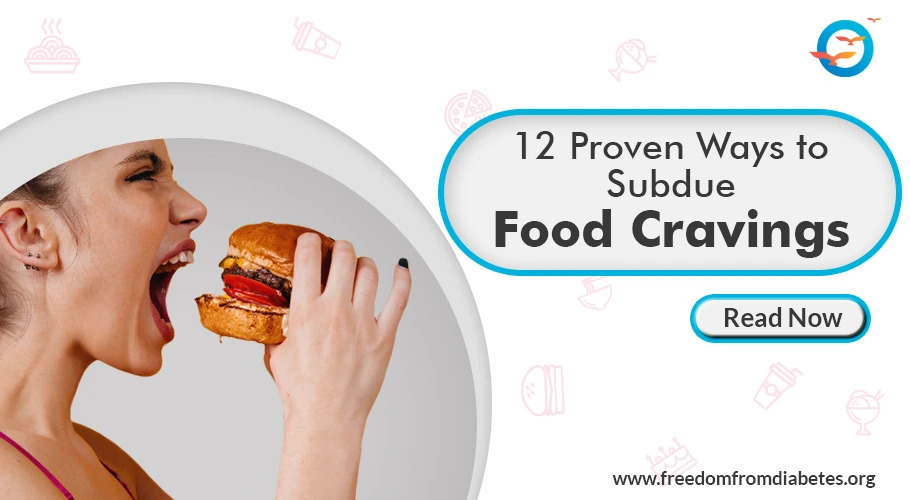Effective Ways to Control Food Cravings
Most of us experience food cravings from time to time — that sudden, strong urge to eat something specific, often sugary, salty, or fried. While occasional cravings are natural, when they happen often or are ignored, they can lead to overeating, weight gain, and loss of control over eating habits. The good news is, with awareness and simple changes, you can manage cravings effectively without feeling deprived.
Why Do Food Cravings Happen?
Cravings aren’t always a sign of true hunger. They are often influenced by our hormones, emotions, and habits. When you feel stressed, anxious, or sleep-deprived, your body may send signals that mimic hunger. Similarly, when you follow a restrictive diet or skip meals, your body craves high-calorie comfort foods as a way to compensate.
Another common reason is the effect of sugar on your brain. Sugary foods trigger a dopamine release — the “feel-good” hormone — giving you a temporary mood boost. However, the energy spike quickly drops, leaving you wanting more sugar to feel good again. Understanding this pattern is the first step toward breaking it.
Don’t Fall for Fad Diets
Many people try to eliminate cravings by going on extreme diets or cutting out entire food groups. While this may seem helpful initially, it often backfires. Fad diets cause nutritional imbalances and make you feel deprived, which increases your desire for the very foods you’re trying to avoid.
Instead, focus on eating balanced, wholesome meals that include all essential nutrients. When your body gets enough nourishment, your cravings naturally reduce. Remember — the goal is not starvation but satisfaction through healthy choices.
Add More Protein and Fiber to Your Meals
Protein and fiber are your best friends when it comes to fighting cravings. They keep you fuller for longer, prevent blood sugar spikes, and reduce the urge to snack unnecessarily. Include lentils, sprouts, beans, tofu, and nuts for protein. For fiber, eat fruits, vegetables, and whole grains. These foods not only stabilize appetite but also improve digestion and overall energy.
Drink Water Before Reaching for Snacks
Thirst is often mistaken for hunger. Many times, when you crave something to eat, your body may actually just need water. Try drinking a glass of water and wait for 10 minutes. If the craving fades, it was likely dehydration. Staying hydrated throughout the day can significantly reduce unnecessary snacking.
Manage Stress Mindfully
Stress plays a huge role in emotional eating. When stressed, your body releases cortisol — a hormone that increases your appetite for high-sugar and high-fat foods. Managing stress through mindfulness techniques such as meditation, deep breathing, or yoga can be very effective.
At Freedom From Diabetes (FFD), we emphasize inner transformation — focusing on mental and emotional wellness along with physical health. When you manage your emotions better, you naturally reduce food-related triggers and gain long-term control over your eating habits.
Stay Physically Active
Regular exercise isn’t just good for your body; it’s great for your mind too. Physical activity releases endorphins that boost mood and reduce the desire for comfort foods. You don’t need to do intense workouts — even 20–30 minutes of brisk walking, cycling, or stair climbing can make a big difference. Staying active also helps you sleep better, which further keeps cravings under control.
Prioritize Sleep Every Night
Lack of sleep disturbs the balance of hunger hormones — ghrelin and leptin. When you’re tired, ghrelin (the hunger hormone) increases, and leptin (the fullness hormone) decreases, making you crave more food, especially sugary and fatty items. Aim for 7–8 hours of quality sleep each night. A good sleep routine helps your body regulate appetite naturally.
Eat at Regular Intervals
Having a structured eating schedule can help prevent sudden hunger pangs. When your body knows when to expect food, it stays satisfied and less likely to crave junk. Try to eat balanced meals every 3–4 hours, including small, healthy snacks like fruits or nuts if needed.
Plan Treats Smartly
Completely avoiding your favorite foods can make you feel restricted. Instead, plan small “treat meals” once in a while. This approach helps you enjoy your favorite flavors without guilt and makes it easier to stick to your healthy eating habits long-term. The key is moderation — not elimination.
Try the Apple Test
Whenever you’re unsure if you’re truly hungry, use the “apple test.” Ask yourself — Would I eat an apple right now? If yes, it’s probably real hunger. If not, it’s just a craving or emotional urge. This simple trick helps you become more mindful and in tune with your body’s actual needs.
Keep Blood Sugar Stable
Fluctuating blood sugar levels often cause strong cravings. Eating balanced meals rich in fiber, protein, and healthy fats helps maintain stable glucose levels. Avoid sugary drinks, refined carbs, and processed snacks that cause insulin spikes and crashes.
Break the Craving Cycle Naturally
Cravings can’t disappear overnight, but they can be managed with consistent, mindful habits. By eating nutritious food, staying hydrated, sleeping well, and managing stress, you train your brain to prefer healthier options. Over time, you’ll notice that your urges for junk food reduce, your energy levels improve, and you feel more in control of your health.
Remember — healthy eating is not about strict rules; it’s about creating balance and making small, sustainable changes every day.
To learn more practical tips on managing cravings, visit our detailed blog here:
👉 https://www.freedomfromdiabetes.org/blog/post/12-proven-ways-to-subdue-food-cravings/2739



